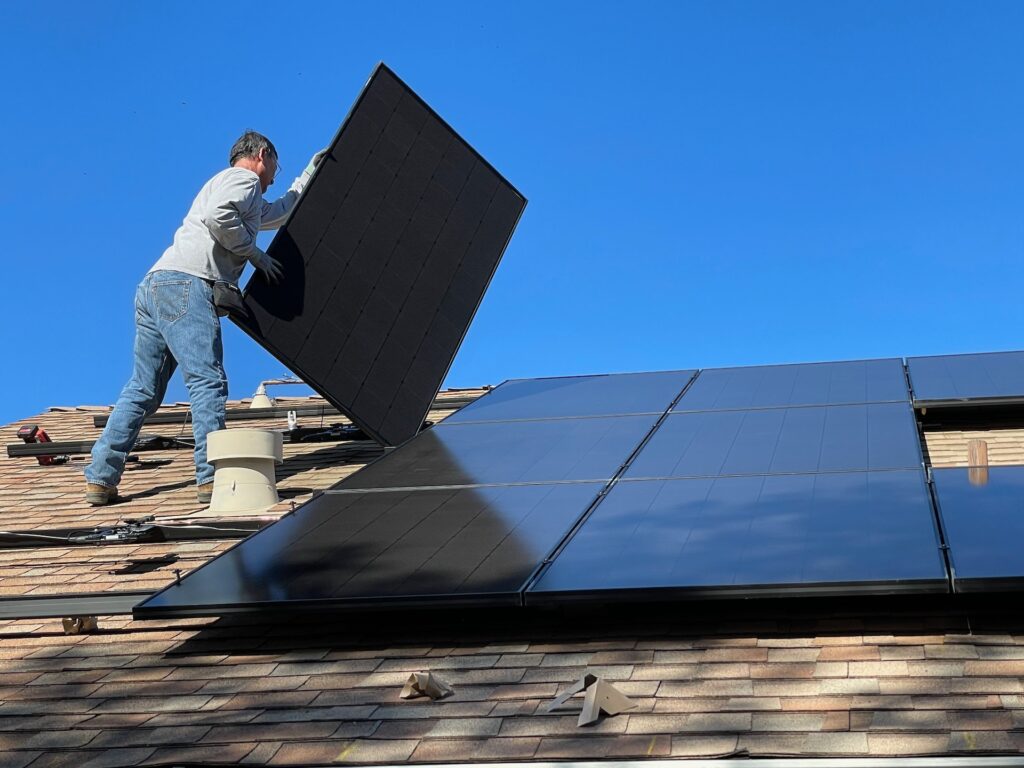When considering selling or renting your property in Portugal, one crucial aspect you must be aware of is the mandatory requirement for an Energy Efficiency Certificate. This certificate, often referred to as “Certificado Energético,” is an essential document in the property transaction process.
What is the Energy Efficiency Certificate?
This document, issued by the Agency for Energy (ADENE), serves as a certification of a property’s energy efficiency. It achieves this through a thermal study that adheres to a standardized system, ultimately yielding an energy classification for the space. This classification typically ranges from class A+ denoting the highest energy performance to class F indicating the lowest energy performance.
What details are included in the Energy Certificate?
The Energy Certificate provides comprehensive data on the property’s structural attributes and energy usage across various facets, including insights into aspects like window insulation, the heating and cooling systems, ventilation, and domestic hot water production. Furthermore, it outlines recommendations for eco-friendly measures to reduce environmental impact, lower energy consumption, and enhance the comfort and well-being of the property’s occupants or users.

What factors determine the energy rating?
- Property’s location
- Property type, floor level, and size
- Year of construction
- Building materials used for walls, roofs, floors, and windows
- Presence of climate control systems, including central heating, air conditioning, and ventilation
- Materials used for generating domestic hot water
What is the goal of energy certification?
Primarily, the energy certification process fulfills a dual purpose. Initially, it functions as a means to evaluate the energy efficiency of a property, offering valuable insights to property owners or tenants regarding its energy performance and suggesting potential enhancements.
Moreover, energy certification carries significant fiscal advantages. Achieving an “A” classification can result in substantial benefits, including a potential reduction of up to 25% in Municipal Property Tax (IMI), exemptions from Municipal Property Transfer Tax (IMT), and access to more advantageous financing terms for renovation projects.

What are the primary benefits of the Energy Certificate?
The primary benefits of the Energy Certificate include:
- Energy Efficiency Assessment: It provides insight into a property’s energy efficiency, helping owners and tenants understand their energy use.
- Recommendations for Improvement: Offers suggestions to enhance energy performance and reduce consumption.
- Financial Incentives: Achieving high energy ratings can lead to tax benefits, exemptions, and favorable financing terms.
- Increased Property Value: Higher energy ratings can boost a property’s market value.
- Legal Compliance: Mandatory in many regions for property sales or rentals, ensuring adherence to regulations.
- Long-term Savings: Reduced energy consumption can lead to lower utility bills and cost savings.
How to improve the energy efficiency?
To achieve the best energy efficiency:
- Insulate Effectively: Properly insulate walls, roofs, and floors to minimize heat loss and gain.
- Upgrade to Energy-Efficient Systems: Invest in energy-efficient HVAC, lighting, and appliances to reduce energy consumption.
- Control and Monitor: Use programmable thermostats, smart meters, and energy monitoring systems to regulate and track energy usage.
- Seal Leaks: Seal any gaps, cracks, or leaks in the building envelope to prevent drafts and energy loss.
- Promote Energy-Efficient Behaviors: Educate occupants on energy-saving practices, like turning off lights and appliances when not in use.

How to get an Energy Efficiency Certificate in Portugal?
In Portugal, obtaining an energy efficiency certificate, commonly known as the Energy Performance Certificate (Certificado Energético), involves a specific process. Here’s a general overview of the steps to get one:
1. Hire a Certified Energy Assessor: You need to engage a qualified and certified energy assessor (Avaliador de Certificação Energética) to assess your property’s energy performance. These assessors are typically architects or engineers with the required certification.
2. Property Inspection: The energy assessor will visit your property to evaluate various aspects, including the building’s insulation, heating and cooling systems, lighting, and other energy-related features. During the inspection, the assessor will collect data on the property’s characteristics, systems, and materials used in construction.
3. Energy Performance Calculation: Using the collected data, the energy assessor will use computer software to calculate the property’s energy performance and assign an energy efficiency rating, typically on a scale from A+ (most efficient) to G (least efficient).
4. Issue the Certificate: The assessor will prepare the Energy Performance Certificate, which includes information about the property’s energy efficiency and recommendations for potential improvements. The Energy Performance Certificate must be registered in the National Energy Certification and Indoor Air Quality System (SCE) database. This registration is typically done by the energy assessor.
5. Provide the Certificate: The certificate is then provided to the property owner, who must make it available to potential buyers or tenants when selling or renting the property.
How long does it take to obtain an Energy Certificate?
Obtaining the energy certificate requires an initial property visit by the assessor to collect essential data. With assessors having the authority to manage the entire process, and barring any information collection hurdles, the certificate issuance typically takes two to three days.

How much does an Energy Certificate cost in Portugal?
The registration and issuance fee for an energy certificate for a residential property varies between €28 (T0 and T1) and €65 (T6 or higher), plus VAT. In the case of commercial and service buildings, it ranges from €135 (usable area up to 250 square meters) to €950 (over 5000 square meters), plus VAT. In addition to this amount, there is the cost of the service charged by the expert, which is not standardized. It is advisable to compare fees.
Energy certificates can be updated without payment of a new fee as long as they remain valid, but the validity period will not be extended. In the case of an update, the expert may charge fees.
What are the fines?
Individuals in violation may face a fine ranging from €250 to €3,740. On the other hand, businesses could be liable for penalties ranging between €2,500 and €44,890.
How long is the Energy Certificate valid?
The Energy Certificate remains valid for a period of 10 years starting from its issuance date, applicable to residential properties and small commercial or service spaces. Within this 10-year timeframe, the Energy Certificate can be transferred through legal documentation.




